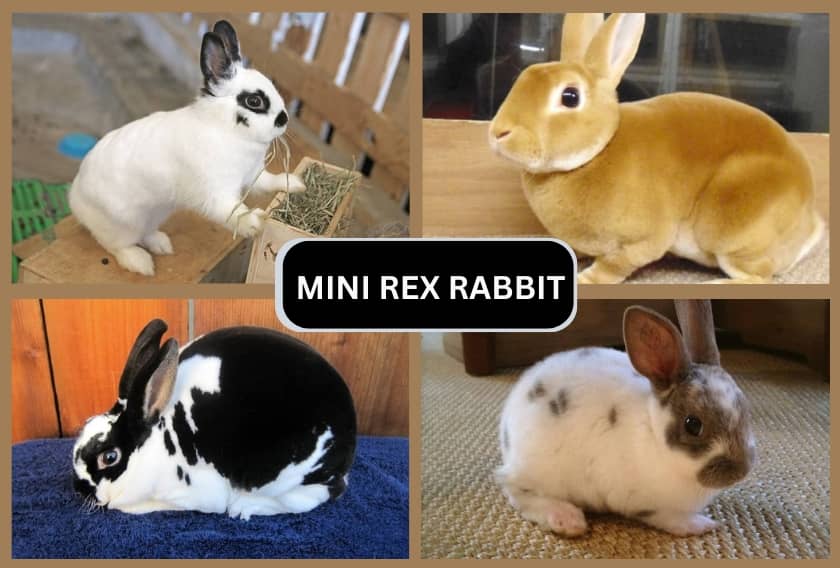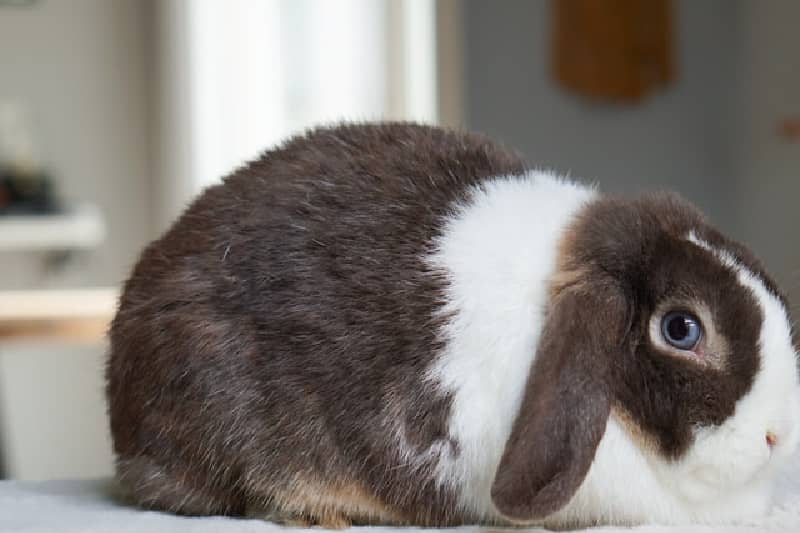The Lionhead rabbit is one of the most stunning rabbits with a unique personality and temperament. The Lionhead rabbit has got this name and become very popular in recent years due to a wool mane encircling its head, a characteristic that is reminiscent of a male lion. It is a recognized breed by the British Rabbit Council(BRC) and the American Rabbit Breed Association(ARBA).
Lionhead rabbits are known for their distinctive mane of fur around their heads, which gives them a lion-like appearance. It has a compact upright body and a high head mount with erect ears that give it a unique look.
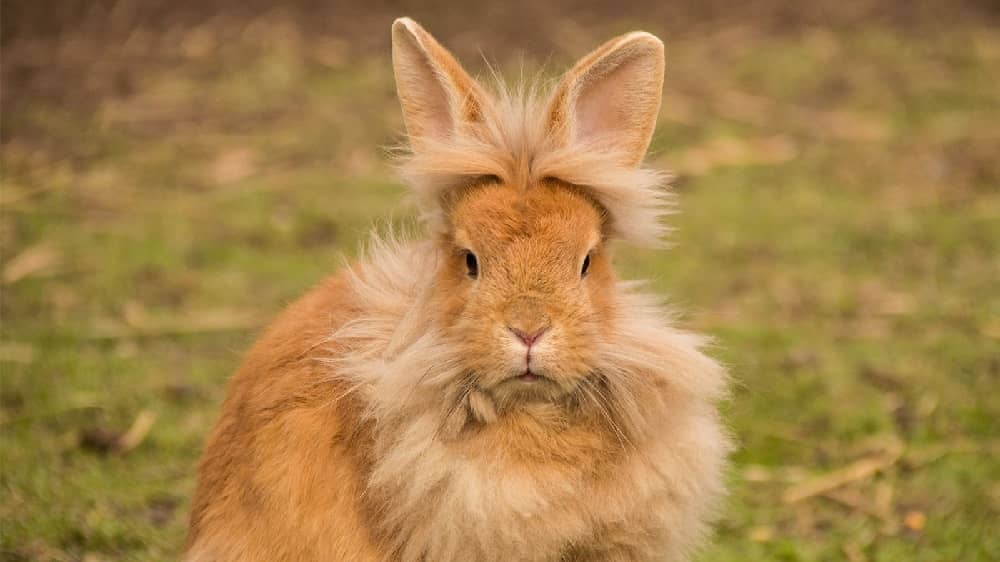
The scientific name of Lionhead Rabbitis is Oryctolagus cuniculus. The average size of a LionHead rabbit is nearly 8-10” in length with a lifespan of 7 to 9 years. Lionhead rabbits are small, typically weighing between 2.5 to 3.5 pounds. Their compact size makes them ideal for indoor living.
This breed was first developed in Belgium and later recognized by the American Rabbit Breeders Association (ARBA) in 2013.
What is Single and Double mane Lionhead?
Due to a genetic mutation, there is a wool appearance on the head and the flanks. This gene is known as the “mane” gene. The mane is thick and wooly soft with crimping. The crimping depends on the number of genes it inherits from the parents.
The mane is also of two types, Single mane, and double mane. The rabbits with a double mane have two mane genes. These are distinguished with a noticeable “V” form around their flanks.
As their name implies, the single-mane rabbits only have one mane gene. The mane can be around its head, ears, chin, and sometimes on the chest and rump. Some rabbits may have thin, wispy manes that disappear when they get older.
Examining your lionhead rabbit closely soon after birth is the only way to determine if it has a single mane or two manes. A single mane lionhead rabbit is most likely the parent of a baby that appears to be a typical rabbit infant. As they get older, their manes will begin to grow. A double maned lionhead rabbit is a baby that already has a pronounced V shape around their skirts or flanks.
Please remember that it will be nearly impossible to determine how many mane genes your bunnies have once they begin growing manes. Thus, the majority of experts advise marking them as soon as possible after birth.
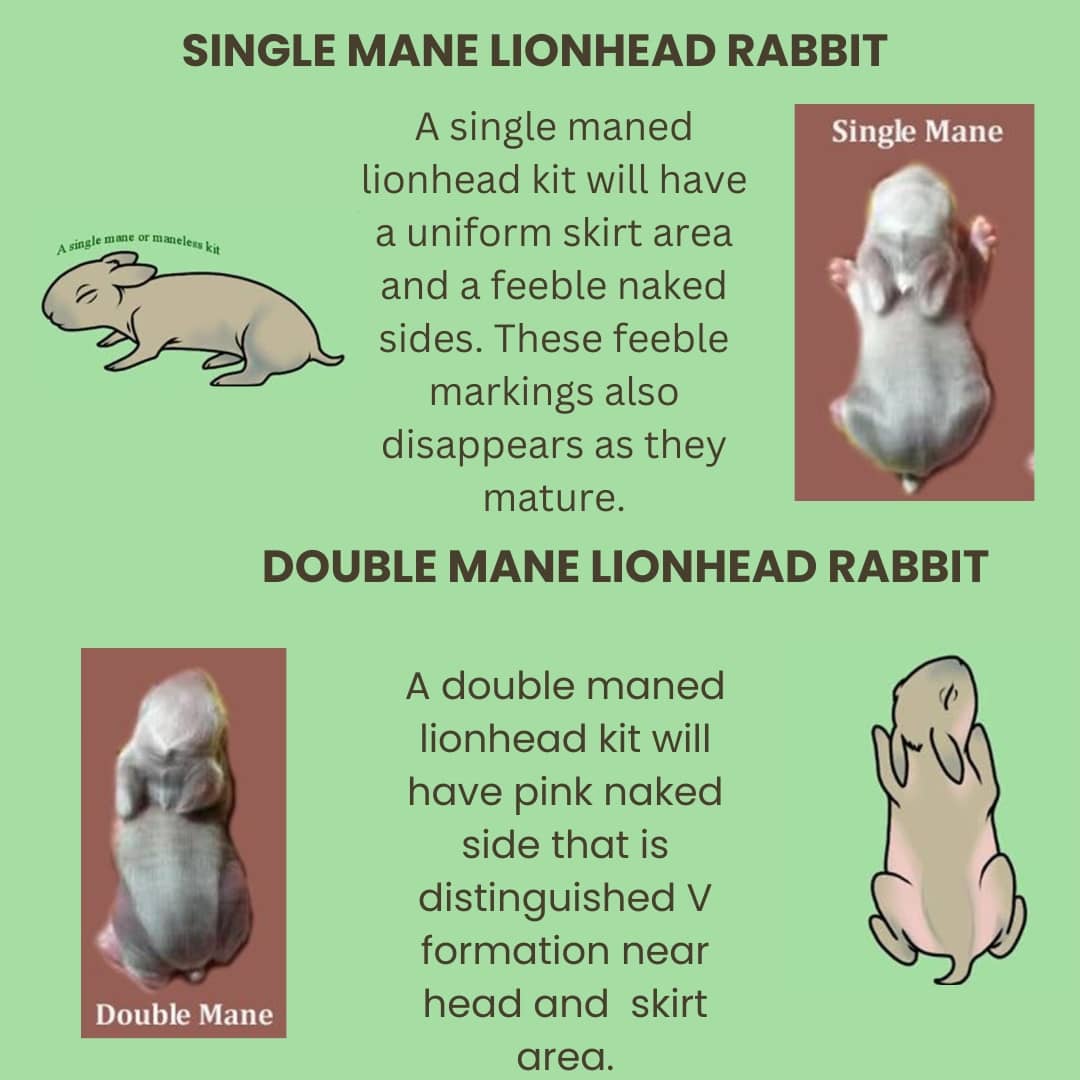
These adorable, fluffy creatures have become increasingly popular pets first in Europe and later in the USA due to their unique appearance and charming personalities. These attractive bunnies come in variety of colors and fur such as black, blue. golden, fawn and white with or without markings.
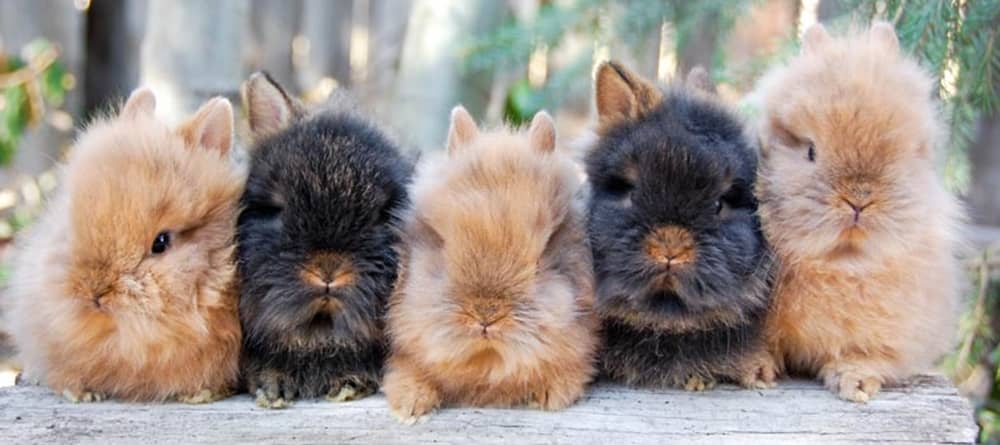
They are small, friendly, and excellent pets for both first-time and experienced rabbit owners.
Male Vs. Female Lionhead Rabbits
Both male and female Lionhead Rabbits make great pets but there are some differences in their behavior and temperament. These differences can also be because of their age, species, and condition of being spayed or neutered.
Males (Bucks):
The male Lionhead Rabbits are easier pets as compared to females because they are more social and friendly. The distinctive features are territorial tendencies, destructive tendencies, and cost of health care. The males
- Tend to be slightly larger than females.
- Often more laid back and affectionate.
- Can be territorial if not neutered.
Females (Does):
Not all females are territorial or less calm as compared to males. The personality differences can become more subtle if the females are spayed but the surgeries are more complicated and expensive. The females are
- Generally more active and curious.
- Can be territorial, especially when nesting.
- Spaying reduces the risk of reproductive cancers and behavioral issues.
Behavior and Temperament of Lionhead Rabbit
Lionhead rabbits are known for their friendly and social nature. They are playful and enjoy interacting with their human companions. These are social creatures and love interaction, it is better to keep them in pairs of either sex or opposite sex if they are neutered or spayed.
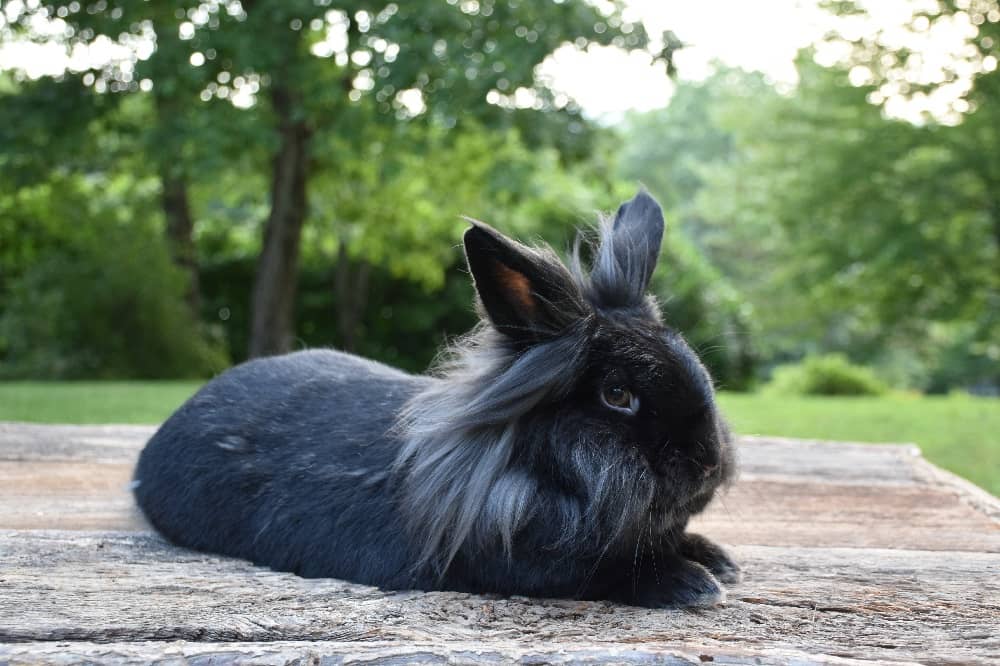
They can be timid and require gentle handling, especially when young. However, these rabbit breeds show some signs of aggression such as foot stomping ,nipping, or biting if they feel threatened or insecure.
These rabbits are intelligent and comprehend simple orders such as come, play, and eat.
They can be trained to use a litter box and can learn simple tricks. With the help of a clicker-trainer device, they can be taught to respond to sounds and act accordingly.
How to Care for a Lionhead Rabbit?
The care for a Lionhead rabbit begins with providing a healthy and nutritious diet, comfortable living, and gentle handling. The rabbit also needs a daily dose of exercise in the form of engaging activities to remain distracted from destructive instincts of chewing and digging.
Housing Requirements
Lionhead rabbits need a spacious, safe, and clean living environment. A spacious cage or hutch that is at least 4 feet long, 2 feet wide, and 2 feet high is recommended. In addition to it, a separate play area should be provided to keep your bunny active and playful.
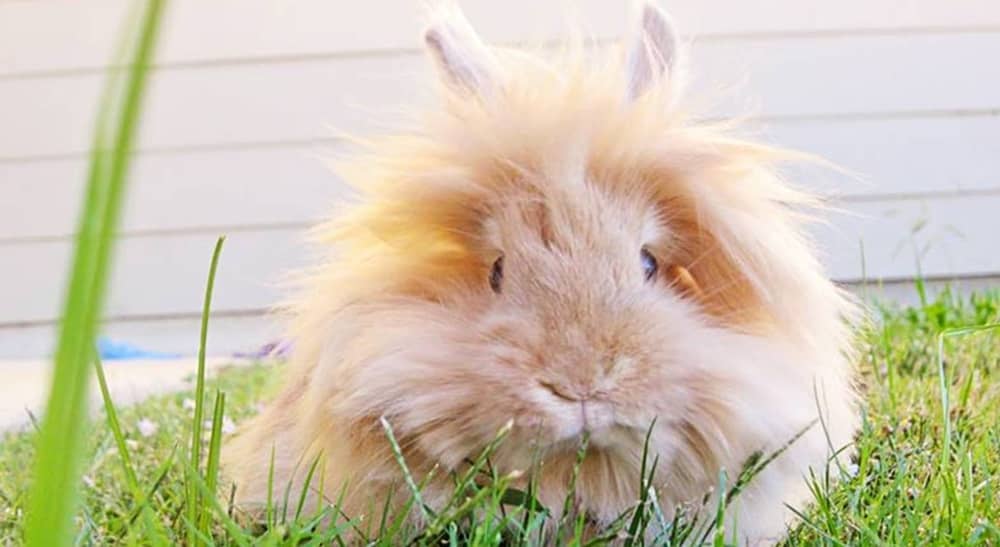
A large indoor cage or a secure outdoor hutch is necessary, with ample space for exercise and exploration. Lionhead rabbits require a spacious enclosure where they can move around freely. Indoor housing is ideal to protect them from predators and extreme weather.
Specific Substrate Needs:
As a bedding material, you should utilize absorbent materials like hay, aspen shavings, or paper-based items. A washable carpeting can also be a good option as it is easy to clean and manage. Moreover, it is inexpensive too!!.
You should keep them in a solid bottom enclosure, as wire bottoms can hurt their sensitive feet.
Litter Box:
The Lionhead rabbit is an intelligent animal and learns to use a litter box with the help of treats. You can give treats every time your rabbit uses a litter box.
A litter box is a container made specifically to hold litter, a substrate that manages odors and absorbs waste. The size of the litter box should be nearly twice the size of your rabbit to allow it to sit and turn around comfortably. It should also be filled with safe litter material.
Exercise and Toys
Lionhead rabbits require a lot of exercise to maintain good health. Every day, give them some supervised time to hop and explore outside of their area. To keep them occupied, you might give them toys and chew blocks.
What Food Does Your Lionhead Rabbit Eat?
It is essential for your bunny’s general health that it eat a balanced diet. Hay is a must for your pet’s digestive system and oral health, therefore give it to them in endless amounts.
You can give Timothy hay, Orchard Grass, or Grass hay to your Lionhead. You should avoid alfalfa if feeding your bunny is older than 7 months, as it may lead to obesity in them. High-quality rabbit pellets and fresh veggies should be used as supplements. Lionhead Rabbits enjoy having carrot tops, Lettuce, and celery leaves.
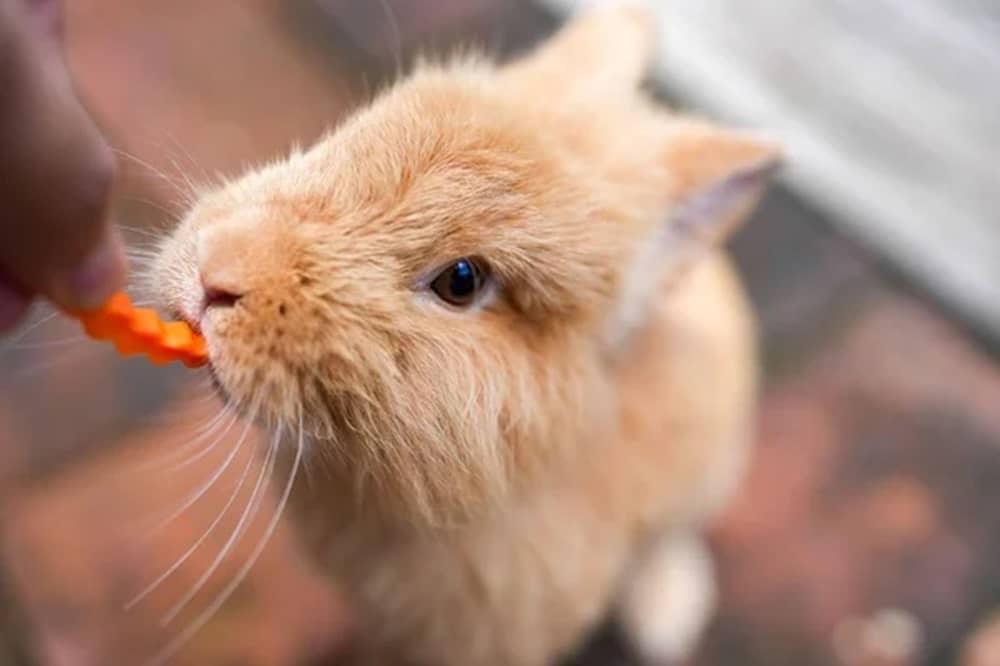
You should keep in mind that the diet should be low in sugars and high in fiber.
To prevent heat stroke and dehydration, your Lionhead rabbit needs to have access to fresh, clean water.
Exercise
Lionhead Rabbits need at least 3 to 4 hours of exercise outside their cage daily. Provide a safe, enclosed area where they can run and play. The lionhead rabbit needs a ramp to climb, a pile of hay to hop on, and some boxes to climb on.
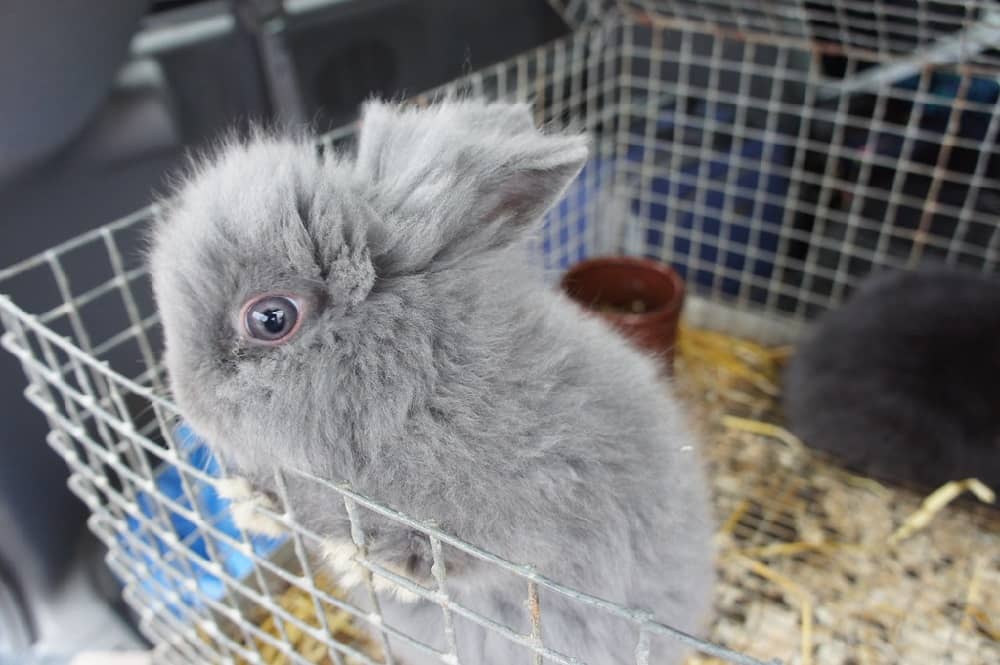
There can be a variety of toys such as chew toys, forage food toys, and nudge toys that can make the environment more enjoyable and engaging.
Handling
Rabbits can be sensitive to handling and need to be approached calmly. Lionhead Rabbits are shy and love to relax and may not like to be held.
You should always support their hindquarters to prevent spinal injuries as they have a delicate backbone. Handle your Lionhead rabbit gently and frequently to build trust. One should never pick up a rabbit by its ears or scruff, it is very painful to them.
It would be better if you first build trust with your bunny by sitting near its enclosure and giving it time to come on their own towards you. You can gently pet them and once they are comfortable, you can try to hold them.
Common Health Problems
Watch for signs such as lethargy, loss of appetite, unusual droppings, difficulty breathing, or changes in behavior. The changes in the regular behavior are indications of the ill health of your furry friend.
- Dental Issues: Overgrown teeth and malocclusions can cause pain and eating difficulties in rabbits.
- Gastrointestinal Stasis: It is a serious condition where the digestive system slows down or stops. The main cause of this condition is a lack of enough fiber in the diet. You may find your bunny to be lethargic, rejecting food, and passing little or no feces. Moreover, diarrhea, hunched posture, and abdominal pain on touching are other symptoms of GI.
- Respiratory Infections: All breeds of rabbits are susceptible to respiratory illnesses because of their tiny lung capacity. Because the roots of their upper teeth are located directly below their sinuses, lionheads are more likely to develop respiratory disorders. Sinus infections may result from inflammation of the gums and upper teeth. It can be caused by poor hygiene or environmental factors.
- Parasites: If you see your Lionhead rabbits itching, it may be due to mites and fleas. The condition is treatable with anti-mite preparations in the form of an injection or spot-on treatment.

Regular veterinary checkups are essential to maintain your rabbit’s health.
Grooming
Lionhead rabbits require regular grooming to keep their fur from matting. You need to brush them at least once a week and more frequently during shedding seasons.
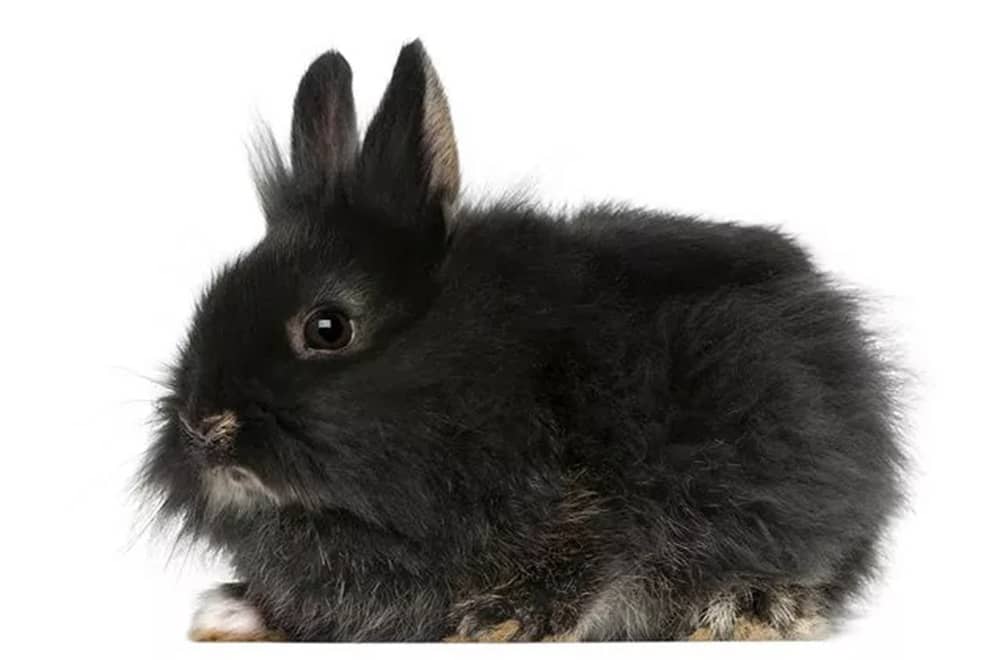
You can use a rubber pimple brush or mitt to remove the loosely built-up fur. This brush is well-suited for molting and for general grooming, a soft brush should be used. The grooming kit should have a nail clipper also to trim the nails as needed.
Regularly check their nails and trim them as needed.
Upkeep Cost
Rabbit keeping is expensive as it requires initial setup costs that is for setting up its cage, bedding, food bowls and water bottle, chew toys, and decors. Moreover, there will be ongoing monthly expenses of around $40- $60 for food, bedding, and vet visits. Apart from this, you may need to replace worn toys, clogged water bottles, or any broken items. Expect to spend around $400 to $800 per year on your rabbit’s care.
Pros and Cons of Keeping a Lionhead Rabbit as a Pet
Lionhead rabbits make wonderful pets but you need to analyze both advantages and disadvantages before bringing this furry friend at your home.
Pros:
- Affectionate and social: The Lionhead rabbits are adorable, cute, and social creatures They make great bonds with the owner and other pets.
- Small Size: Their small size is an added advantage for easy handling and indoor living. Therefore Lionheads are ideal for apartment living.
- Low noise level: The bunnies are calm and quiet animals with no barking, whining, and meowing that would not disturb other housemates.
- Intelligent and trainable: The rabbits are intelligent and trainable to certain commands. They can also be litter-trained.
- Long lifespan: They have a long lifespan and you have more time to spend with your pet.
Cons:
- Relatively high-maintenance grooming: Lionhead Rabbits are clean animals but needs regular brushing so as to detangle their long hair. It is essential to remove that loose fur so as to avoid ingestion.
- Health Concerns: Lionheads are prone to dental and gastrointestinal problems and hence need checkups and care.
- Destructive if not supervised: The rabbits love to chew and dig and if they don’t get enough Chewing and digging are the natural instincts of rabbits. If they are not provided with chew toys or other activities to satiate this desire, you may find damaged cables and wires of your home.
- Requires a significant time commitment: The rabbits require plenty of exercise both inside and outside of their enclosures. Therefore, creating a playpen with rabbit-safe toys, maintaining a clean habitat, and meeting its dietary needs can be challenging.
- Need for regular vet checkups: The rabbits may need regular checkups and taking them to veterinary care is an added responsibility.
- Expensive: Keeping lionheads can be high on your pocket as they need vet checkups, grooming and dietary needs.
Where to Buy Lionhead Rabbits
The Lionhead rabbits can be purchased from a pet stores, from websites or from a rescue shelters. The best alternative is to get it from an authentic breeder. The breeder should have good references. The average cost of Lionhead rabbit is around $20- $120 depending upon its breed.
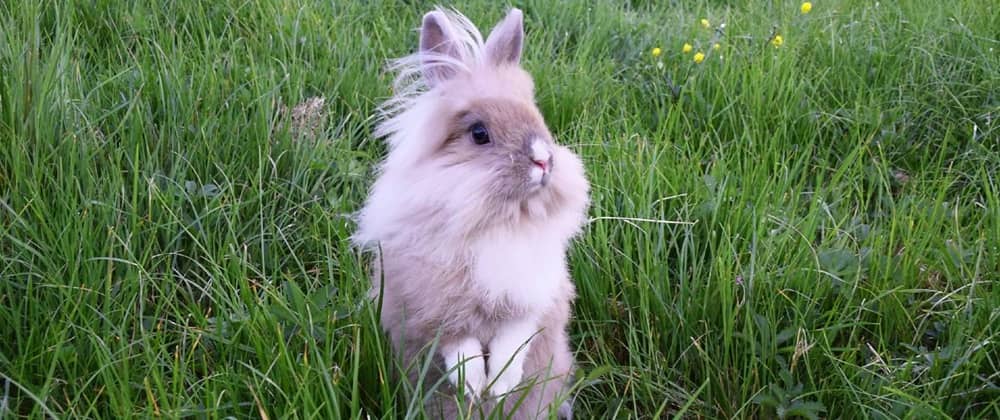
Interesting Facts About Lionhead Rabbits
- Lionhead rabbits were first bred in Belgium.
- These little rabbits have woolly manes that resemble lions and wrap over their tiny heads. This distinctive woolly mane, can be single or double. You can only distinguish or mark them single or double maned when they are too young.
- They are one of the newest breeds recognized by the ARBA.
- Lionheads can be trained to perform tricks.
- They are energetic, good natured and social animals that enjoy the company of other rabbits.
- They can live 7 to 10 years with proper care.
- Lionheads come in a variety of colors and patterns.
- Their mane requires regular grooming to prevent tangles.
- They are intelligent creatures who learns to respond on simple commands like come, play and eat.
- Lionheads can be litter-trained like cats.
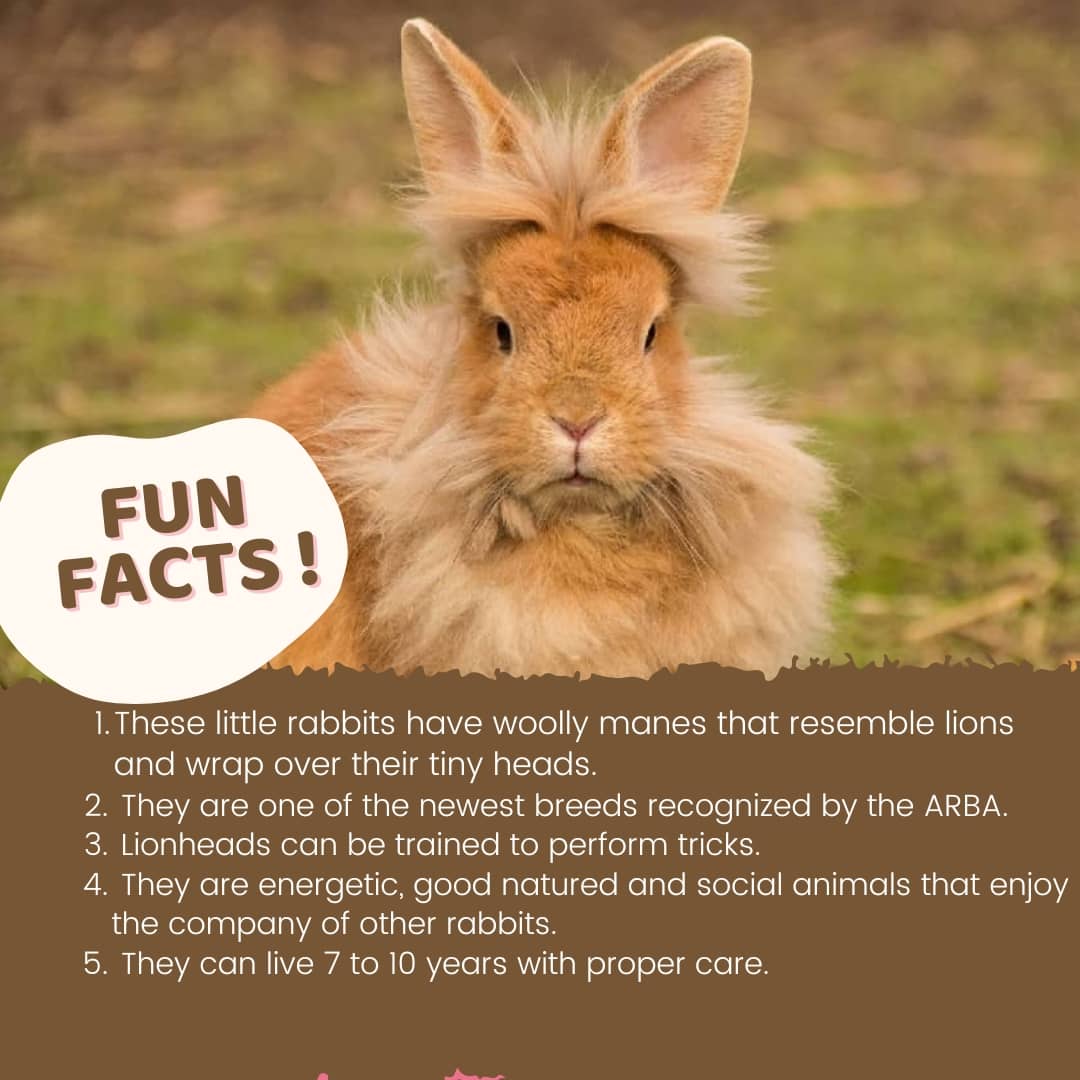
Related Species of Lionhead Rabbit
Each breed has its own unique characteristics and care requirements. The popular rabbit breeds include the
- Holland Lop
- Netherland Dwarf
- Swiss Fox Rabbit
Frequently Asked Questions
Question1. Do Lionhead rabbits stay small?
Answer: Lionhead rabbits are small with an adult size of around 8-10” with an average weight of 2.5 to 3.5 pounds.
Question2. Are Lionhead rabbits good pets for children?
Answer: Yes, with supervision. Their small size and gentle nature make them suitable for older children who can handle them gently.
Question 3. Are Lionhead rabbits aggressive?
Answer: The Lionhead rabbits are known for their calm and gentle nature. The Lionheads are the friendliest breed of rabbits.
Question 4. Are Lionhead Rabbits easy to train?
Answer: The Lionhead rabbits are intelligent and learn to respond to clicker sounds. They can also be litter trained with the help of treats.
Question 5. Are Lionhead rabbits hard to take care of?
Answer: Lionhead rabbits are high maintenance as they need a continuous food supply and chewing material. Moreover , they need regular grooming, due to their long hairs. They are social creatures and need a companion.
Question 6. How much is a Lionhead Rabbit worth?
Answer: Lionhead rabbits can be owned from a pet shelter or a pet store with an expense of $20- $125 depending upon age and gender.
Question 7. What is the lifespan of a Lionhead rabbit?
Answer: In captivity, the lifespan of a Lionhead rabbit is around 7 to 10 years.
Question 8. Why Lionhead are so called?
Answer: Due to a genetic mutation, lionheads are distinguished by their unique wool mane, which gives them a lion-like look and name.

Question 9. Do Lionhead rabbits shed a lot?
Answer: Yes, they have regular shedding cycles, especially during spring and fall.
Question 10. How much space do Lionhead rabbits need?
Answer: They need a minimum of 8 square feet of living space, with additional room for exercise.
Conclusion
In conclusion, Lionhead rabbits are delightful pets that bring joy and companionship to their owners. With the right care and attention, they can thrive and become a cherished part of your family. Whether you’re a first time rabbit owner or an experienced enthusiast, understanding the needs of your Lionhead rabbit is key to providing them with a happy and healthy life.

